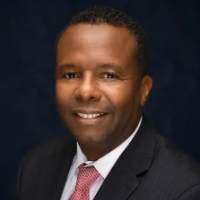 Paisley Misdemeanor Lawyers, Florida
Paisley Misdemeanor Lawyers, Florida
Sponsored Law Firm
-
 x
x

Click For More Info:
-
Law Office of Matthew D. Schultz
495 Grand Blvd. Suite 206 Miramar Beach, FL 32550» view mapAccident & Injury Law Over 25 Years of Experience
Mr. Schultz is an accomplished lawyer that has over twenty-five years of legal experience in accident & injury matters.
800-960-5971
Sponsored Lawyers
1-3 of 3 matches
Estate, Business, Misdemeanor, Intellectual Property
A dynamic entrepreneur and innovative thinker renowned for his extensive expertise in business management, financial services, regulatory compliance, and brokerage operations. Graduating with a degree in liberal studies and small business management from Stony Brook University in 1990, Mr. Gilbert accumulated over 25 years of diversified experience in the financial services industry. Holding senior executive positions at esteemed institutions such as Wachovia Securities Financial Network and TD Waterhouse, he transitioned to law, earning his Juris Doctor degree from Barry University School of Law in 2014. With a multifaceted background, Mr. Gilbert served as a COO for Gazelle.com in 2006, contributing to its evolution into the nation's leading consumer electronics trade-in site with over $125 million in annual revenue. Beyond his corporate roles, he worked as an independent business consultant, guiding the development and turnaround of small to mid-sized companies across various sectors, including brokerage, retail sales, and technology. In his most recent role as an Assistant Public Defender for the Eighteenth Judicial Circuit, Mr. Gilbert advocated for indigent persons facing legal challenges, showcasing his commitment to justice and community service. As a seasoned Wall Street veteran and reputable attorney, Mr. Gilbert is devoted to addressing diverse client needs, from estate planning and asset protection to business, commercial, and corporate law matters. Outside his professional endeavors, Mr. Gilbert finds joy in travel and quality time with his wife, Multida, and their two children, Jody (26) and Jordan (22).
(more)Criminal, Felony, Misdemeanor, DUI-DWI, Expungement




 Matthew Schultz Saint Cloud, FL
Matthew Schultz Saint Cloud, FL Practice AreasExpertise
Practice AreasExpertise


